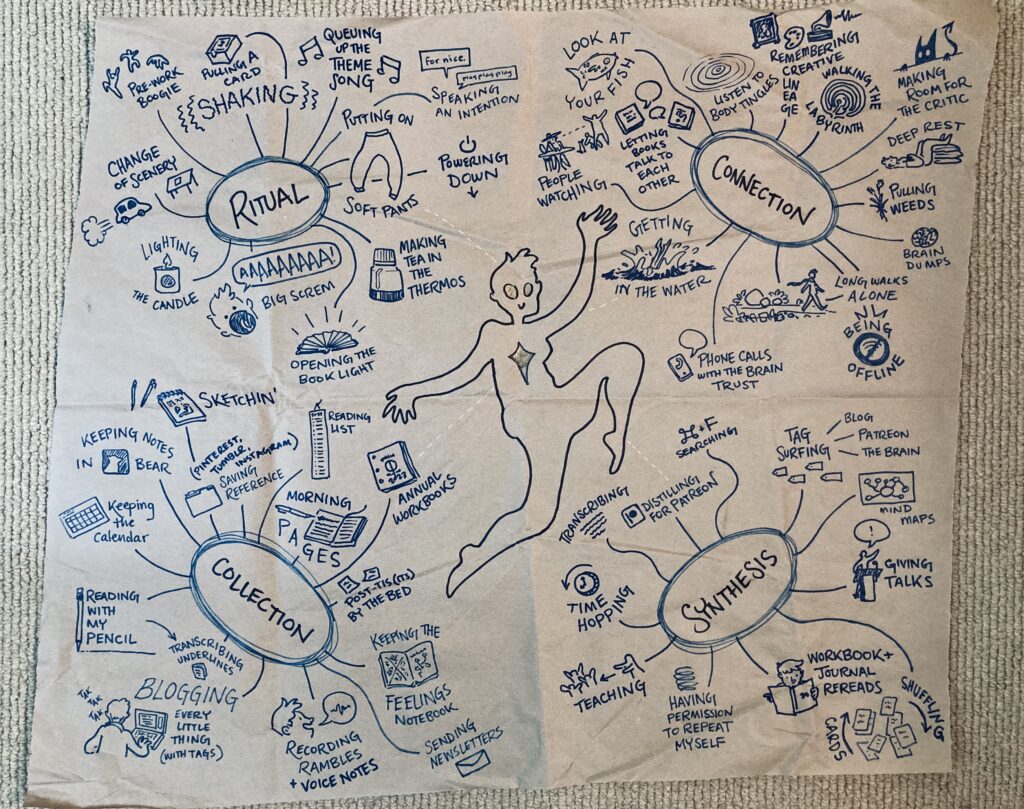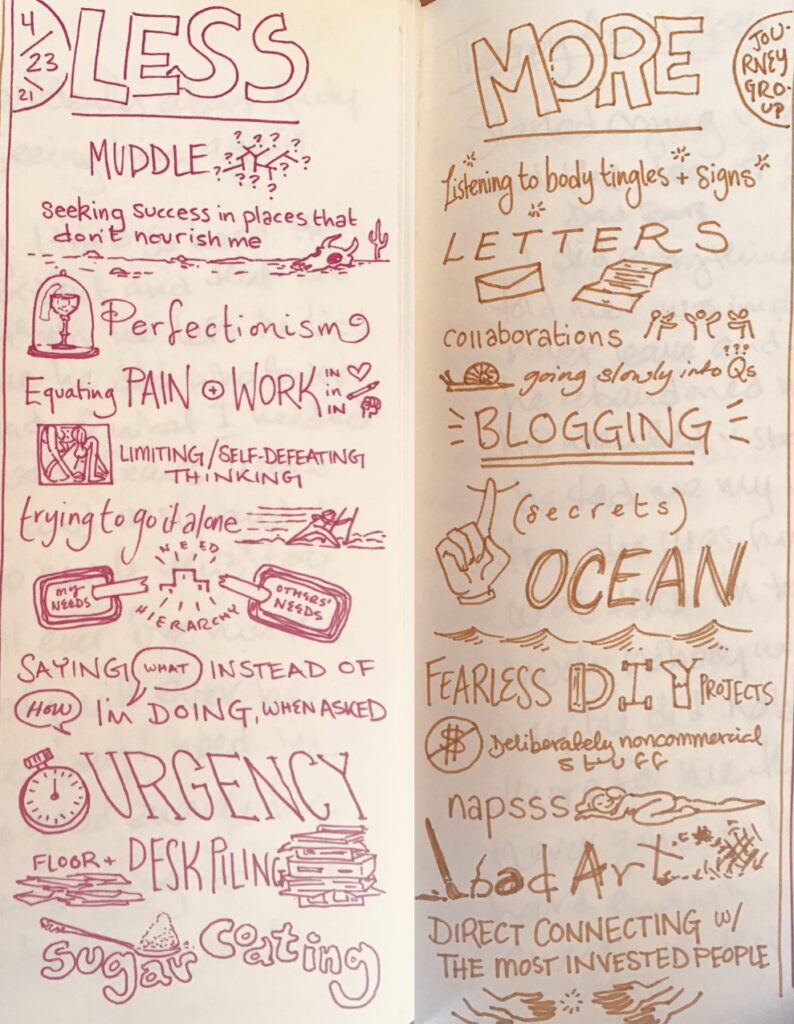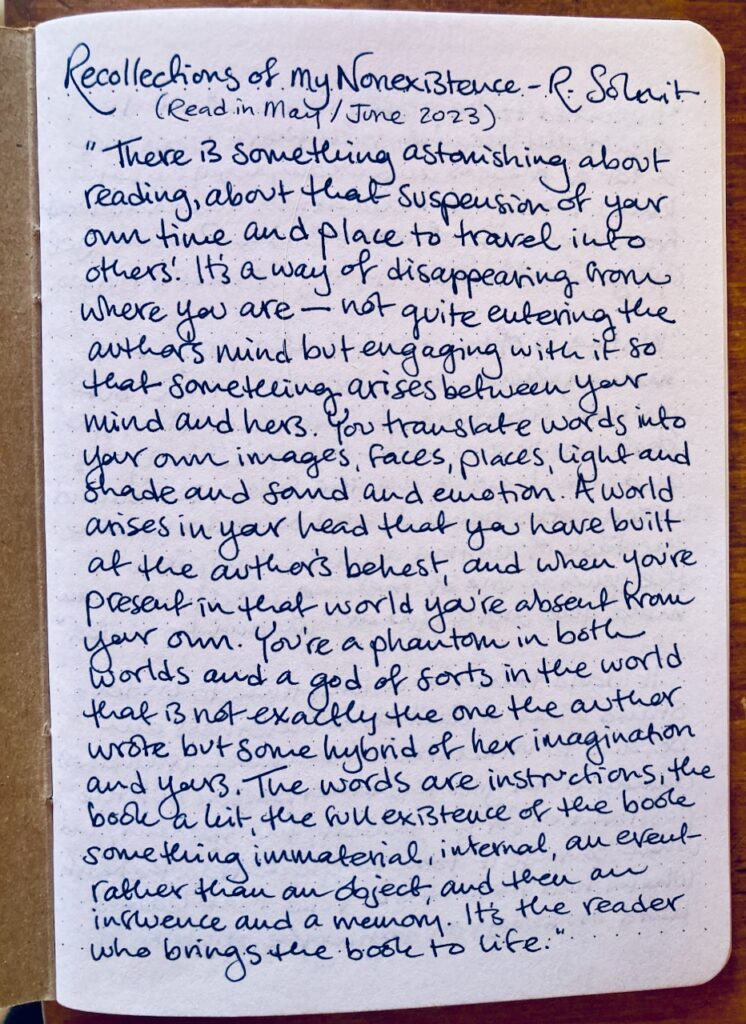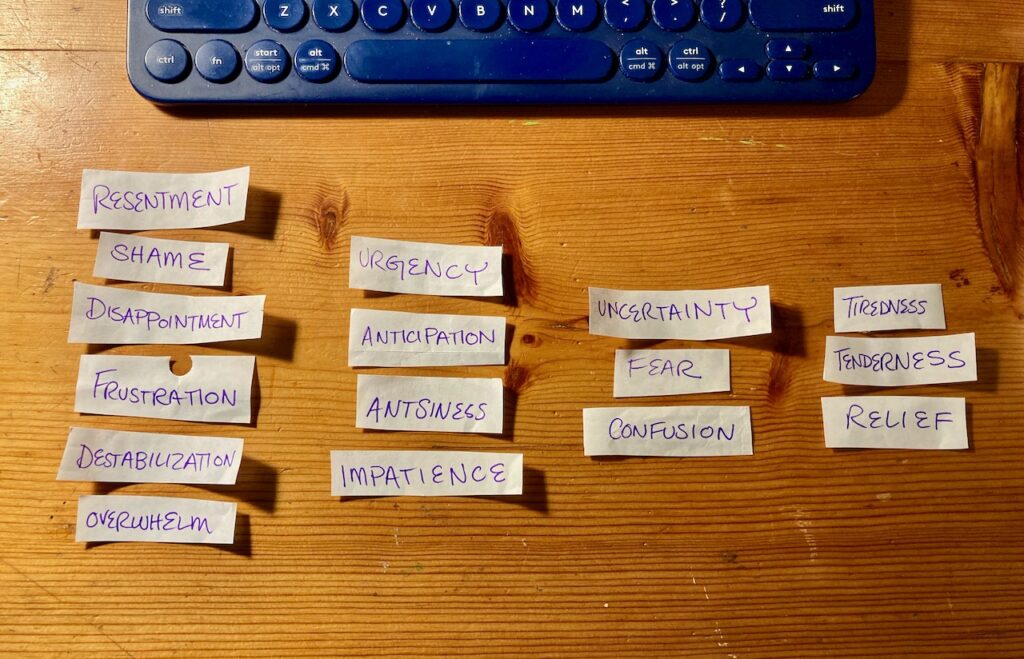
This is a fraction of the items currently in my to-do list app, which functions more like an underpass covered in graffiti tags these days than a tool for productivity. I’m passing through, jotting down names of people I meet, frantic reminders of deadlines, books to read, errands to check off. The chaos of it gives me shivers.
As my dad loses access to words, memories, faculties, ranges of motion, I lose access to inspiration, strength, sensuality, executive function. We mirror each other. My losses aren’t from infirmity, but from emotional exhaustion. Caregiving life is often a life of attrition, and the marathon is taking its toll. I got away for four days last month and came back with a deeper awareness of what’s actually been happening. There’s the kind of burnt out where you can still write about it, and then the kind of burnt out where you can’t. There’s no paper trail from these last few months. The calendar, the blog, my Patreon, my newsletter: all blank. This is how it is sometimes, but it can’t be how it is all the time.
That break was a full breath—an influx of oxygen that look me from 2% on Low Power Mode to a wedge of green battery. Not fixed, but functional. Maybe 38%. Enough to catch little pockets of joy with. Enough to open the “New post” tab and not just want to take a nap.
marlee grace says “I think Summer plays its cursed trick on me to speed me up when I want to go just as slow as October reminds me to.” It gives me chills to read that, because my body feels that way too. In summer I need stillness. The heat and the light and the chaos push me to overextend, when what I really need is five deep breaths face down on the ground, forehead to the earth, painfully aware of the size and shape of my nose as it mushes into the carpet. In the winter the studio is cold in the mornings and I want to dance and I love to dance and it’s not so hot that the idea of riding my bicycle makes my eyes water. But when I’m as tired as I am from a summer of doing Too Much, the movement is hard to come by.
Back to School energy is real, but/and it’s not the same as summer’s altogether-too-brightness. I’ve written here before about how school was often synonymous with spacious, silent mornings that stretched on forever. I can have both the stillness and the movement. I’m chipping away at the space for it. I am trying. I know my body remembers the moment I give it space to do so. (I feel like this is all I say these days, but it’s still true.)
I just saw a punchcard someone made for saying “No” to things the other day. I need to make one.
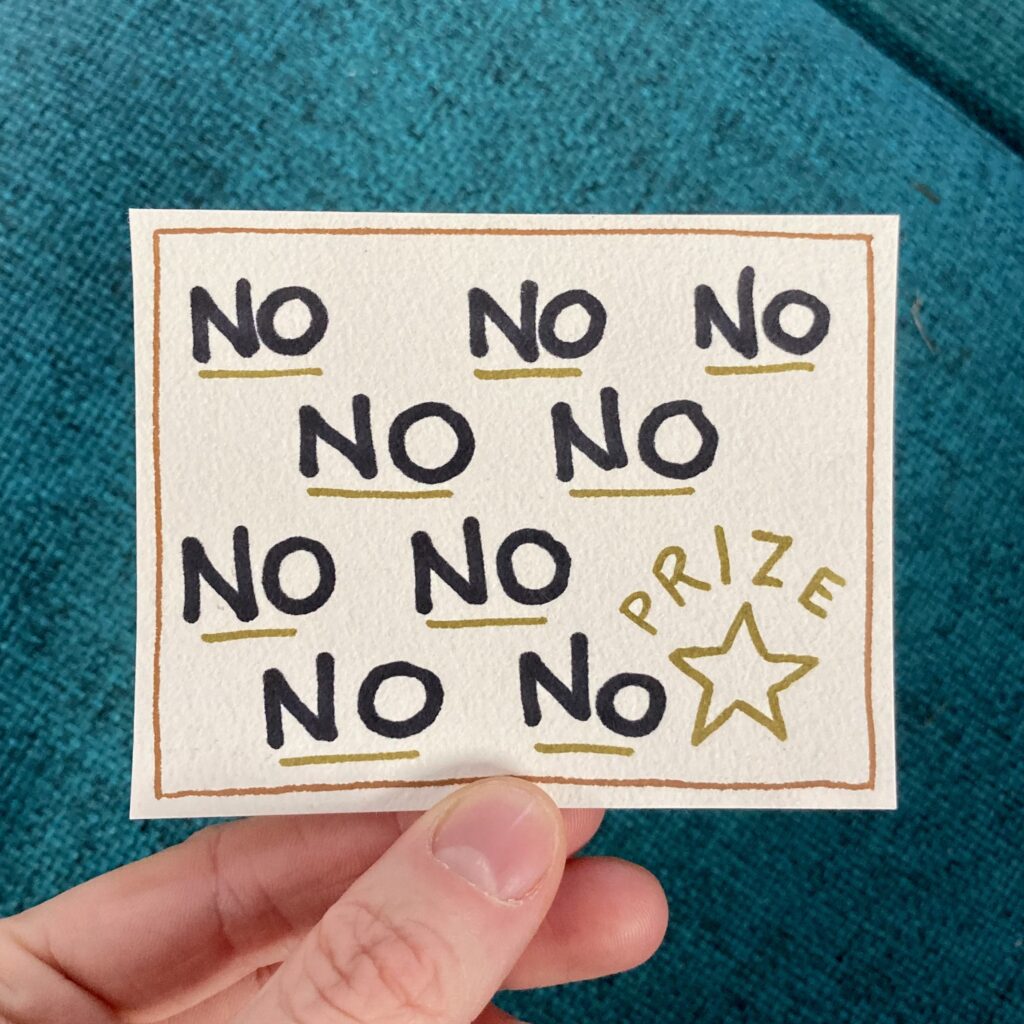
There. I made one.
